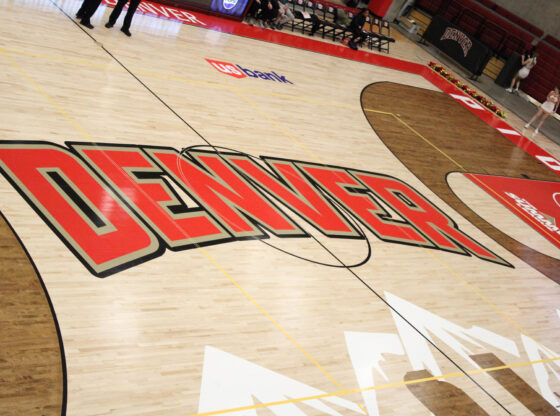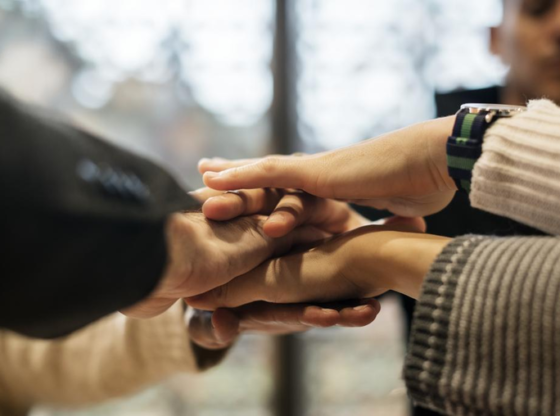This week, as part of our “On The Margins at DU” column that investigates the successes and failures of inclusive excellence at DU, The Clarion spoke with second-year Devanae Allen. She serves as the vice-president of Black Student Alliance (BSA), an affinity group whose mission is dedicated to “promoting cultural awareness and solidarity on campus, foster[ing] the personal development of our membership and provid[ing] a stable support system that they can rely on.”
To get involved with BSA, follow them on Instagram to find out about future meetings and events. They welcome students from all backgrounds and identities.
This interview has been edited for clarity and cohesion.
Kiana: For those who don’t know, what is Black Student Alliance? What role do you serve on campus?
Devanae: It is a community that primarily serves students who identify as black or African American, but we also include people who do not hold that identity. We focus on educating others, celebrating the black identity and supporting one another. It is a great place for people to be surrounded by people that look like them, share similar experiences and are their allies.
Kiana: How inclusive of an environment would you characterize DU?
Devanae: DU likes to promote inclusive excellence, but we don’t see that on campus. When we do, it is because of affinity groups. DU doesn’t do programming for people from marginalized communities. It is always us doing the work with very little to no support from DU.
Kiana: What are the consequences of this lack of inclusion?
Devanae: Students not being as involved on campus. The size of affinity groups. Personally, it is hard to feel a part of DU when they are not actively trying to include you.
The majority of students on campus are white, and they don’t see what we experience. They don’t see the lack of community or representation. We don’t see a lot of non-POCs at BSA meetings, where we discuss these problems. People of color are such a small percentage on campus, and I think inclusive excellence would be pushed more if white students cared.
The burden falls on marginalized groups to educate the population. It sucks because at the end of the day, we are students. We have to focus on our academics—we can’t invest all of our energy into advocating for our communities.
Kiana: Could you expand on that? What work goes into running an affinity org?
Devanae: We do a lot of programming for BSA. We plan months in advance. We have to figure out the money, find out who we need to talk with, book rooms, get custodial facilities and things like that. It is a lot of tedious work that I feel like staff could help us with, but there is no one there to do that. We want to do a good job with our events and make sure they are as perfect as they can be, so it is a lot of time and effort on the part of the Executive Board.
Kiana: How has DU succeeded to take marginalized communities into consideration?
Devanae: We have meetings with the Chancellor once a quarter, and it helps for him to be able to directly see us. We can talk to him about the issues we are having and changes we want to see. It is not a Vice-Chancellor or another administrator—it is him, and that is a step in the right direction. On USG, we have the Diversity and Inclusive Excellence Senator position that was created this year. We have someone who speaks to all of the affinity groups and represents us. In that space, we have a voice.
Kiana: How has DU failed to take the community into consideration?
Devanae: Lack of diversity on campus. Inclusion means having people from all backgrounds across gender, race, ethnicity and socioeconomic status. We don’t see that, yet they promote inclusive excellence. The lack of faculty of color, especially, is how they fail us. All of us want to see more professors who are people of color that we can talk with or reach out to. But there are very few of them here.
Having more faculty of color would positively impact students because it makes things easier in the classroom when you can see a familiar face. I hear stories of microaggressions in those spaces, and I think having faculty of color who can bring different views to a department would combat that.
Kiana: What do you hope to see in the future of inclusive excellence?
Devanae: Advertising affinity organizations and our events more. Implementation of education on these topics, with steps as small as a Canvas module during orientation on power, privilege and oppression. Having training for faculty as well. Making sure that when microaggressions come up in the classroom, action is taken. Not ignoring issues when students bring them up to DU. Giving us visibility.
Kiana: What activism is BSA currently involved in?
Devanae: BSA and all of the other affinity groups are trying to get the demands we have been talking about for years met and implemented. We are trying to bring them up consistently and make sure that when leadership graduates, this activism can continue. We want to keep the ball rolling for the students who come after us.
Through this column, we hope to shed light on the range of identities and experiences that exist on campus, create a space where their voices can be heard and highlight their contentious relationship with DU. We hope to represent them with as much journalistic integrity as possible, but we are aware that there are stories we will fail to communicate with the same voice. We aspire to do better than student organizations and institutions, including The Clarion, have done in the past at treating these topics with the thought and consideration they deserve.
If there is feedback you would like to give or issues you would like to see covered in this column, please reach out to duclarioneditorialteam@gmail.com.











